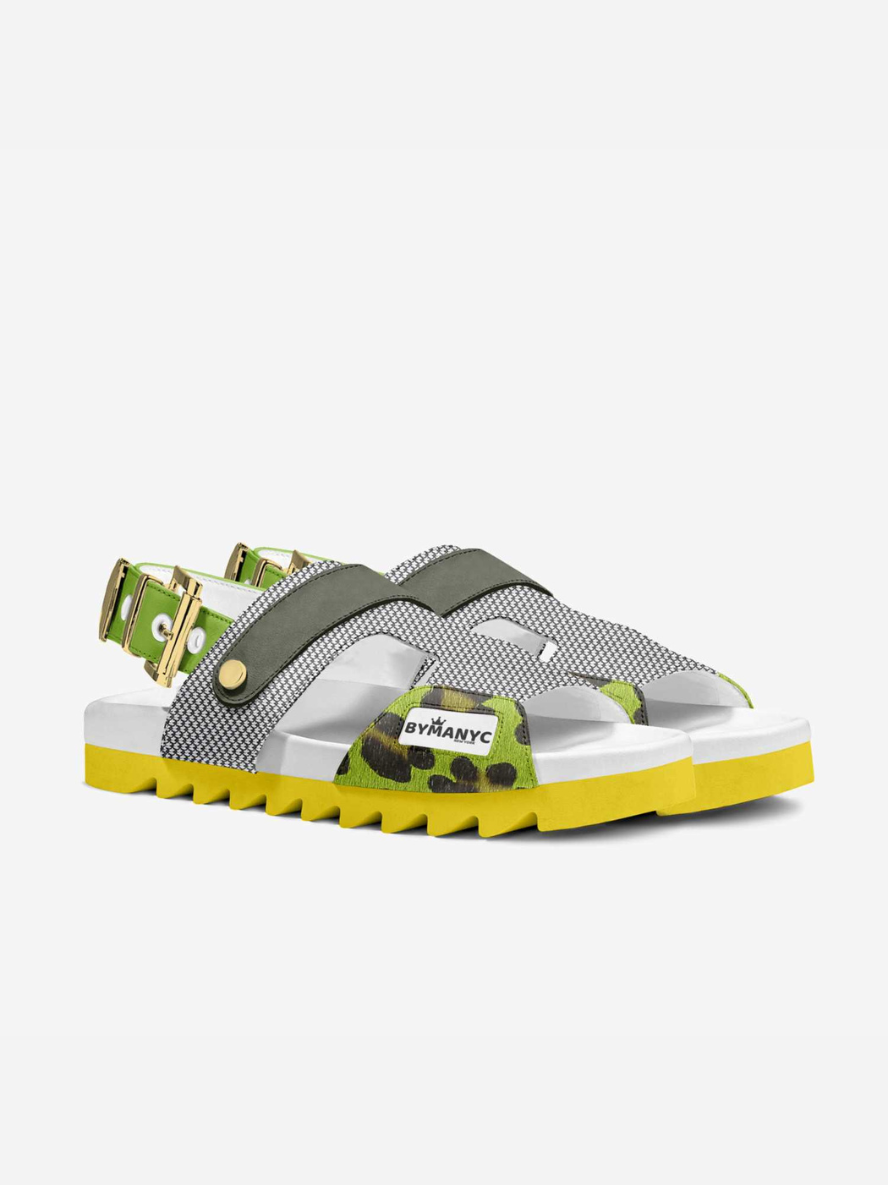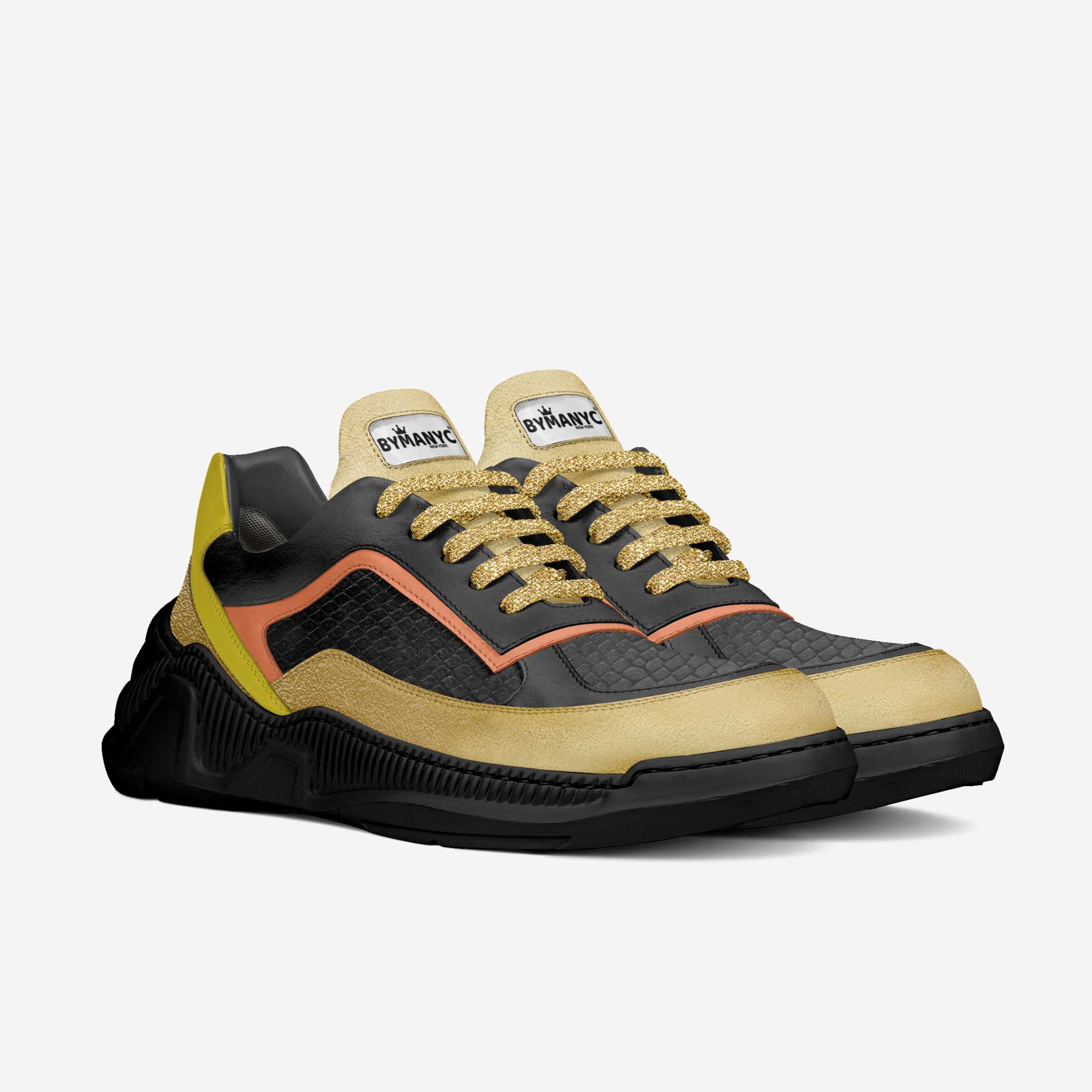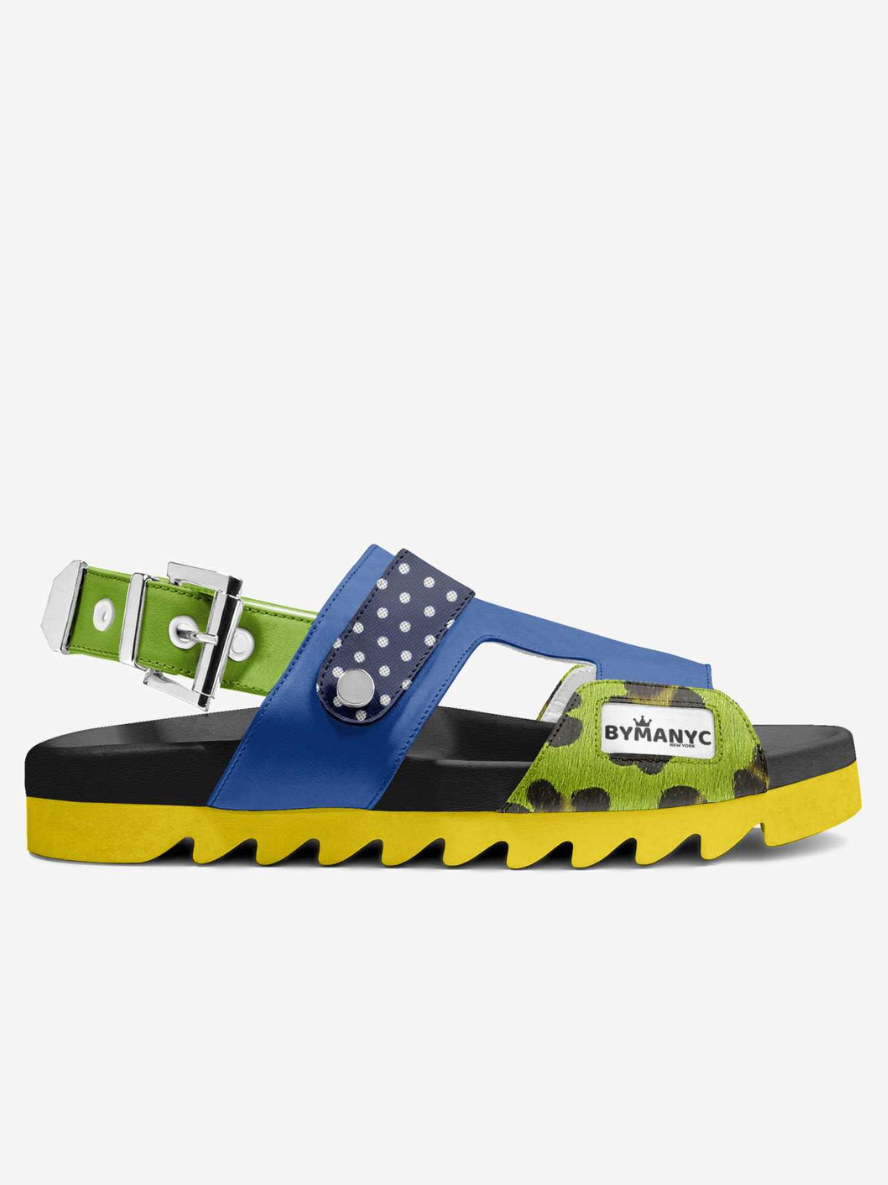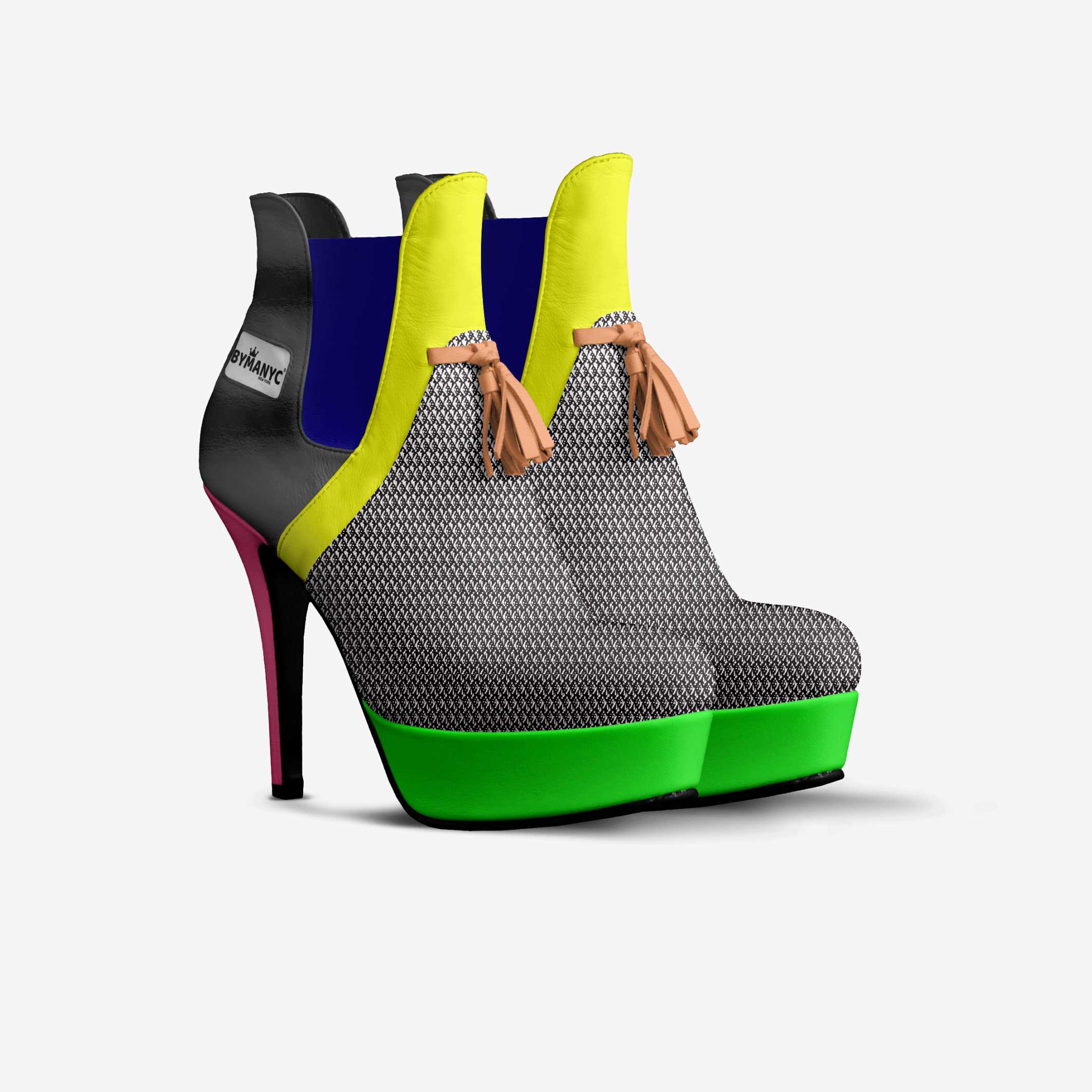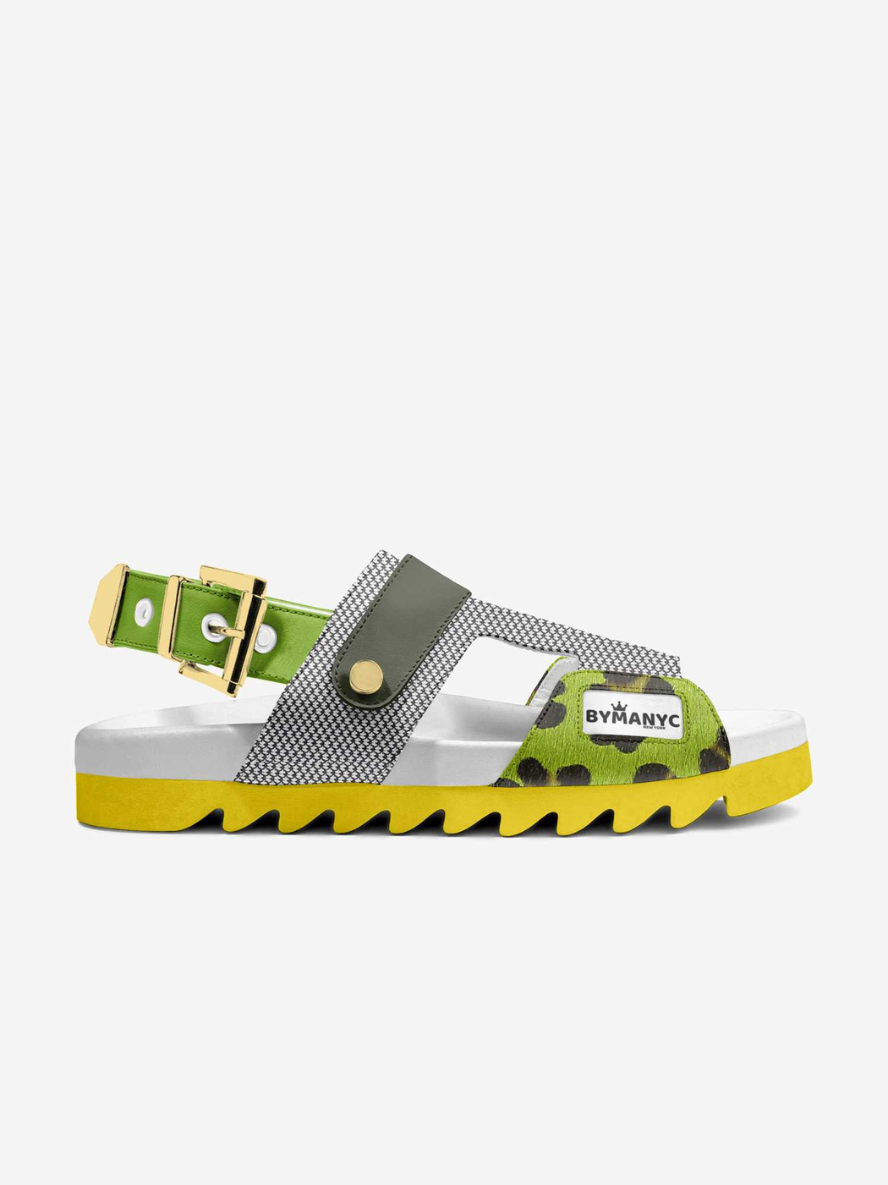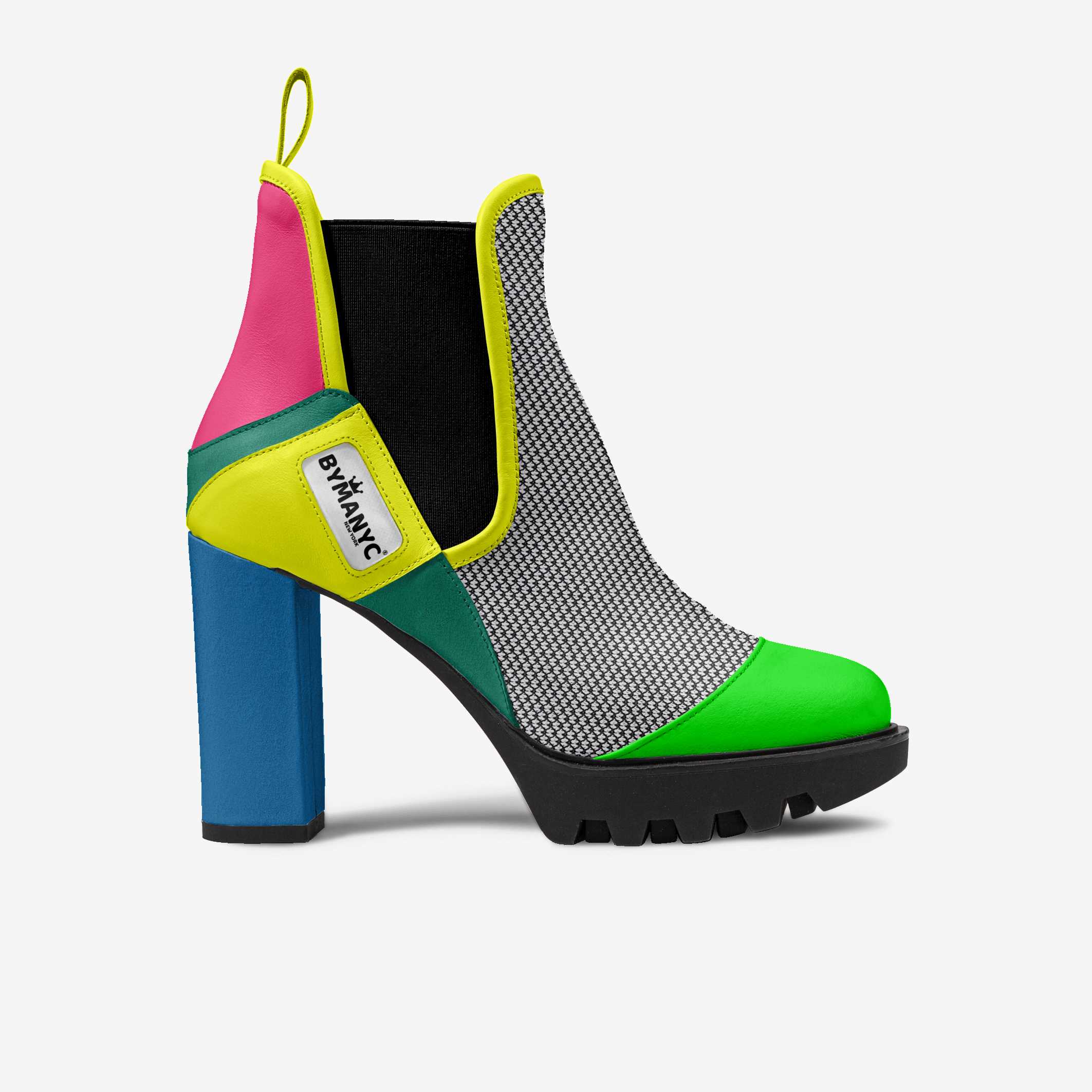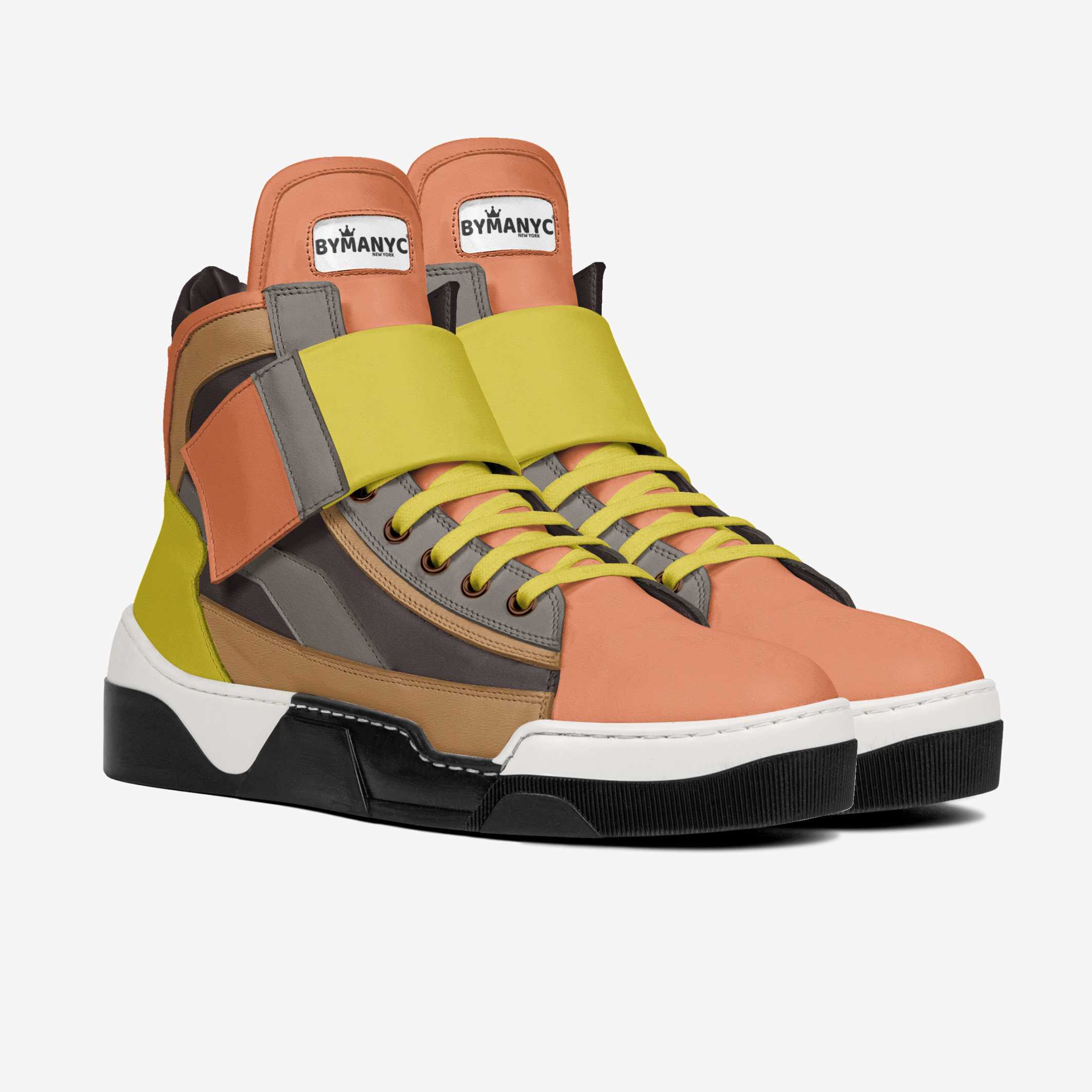
Step Up Sustainably: Discover the Trendsetting World of Vegan Shoes
The fashion landscape has witnessed a remarkable metamorphosis over the past decade, with sustainability becoming the cornerstone of innovative design. Among the myriad eco-conscious alternatives that have emerged, vegan shoes stand tall as a testament to how ethical choices need not compromise on style or functionality. These cruelty-free footwear options have transcended their initial perception as merely an alternative for the environmentally conscious, evolving into a fashion statement embraced by celebrities, athletes, and everyday consumers alike. At BYMANYC ® New York, we believe in fashion that aligns with your values, and our collection of vegan shoes embodies this philosophy.
The journey of vegan shoes from obscurity to ubiquity reflects a broader societal shift towards conscientious consumption. What once occupied a small corner in specialty stores now commands significant shelf space in mainstream retail outlets and dominates online shopping platforms. This transition didn't occur overnight but resulted from a confluence of factors: heightened awareness about animal welfare, growing environmental concerns, and technological advancements in material science that have revolutionized the quality and aesthetics of animal-free footwear.
Today's vegan shoes bear little resemblance to their predecessors. The contemporary market offers an embarrassment of riches, with options ranging from luxurious dress shoes crafted from innovative plant-based leathers to performance athletic footwear engineered with sustainable technical fabrics. These products don't merely imitate their animal-derived counterparts—they often surpass them in durability, breathability, and ecological footprint. Explore the diverse range of vegan shoes available at BYMANYC ® New York.
From Counterculture to High Fashion
The genesis of vegan footwear can be traced back to countercultural movements that prioritized ethical consumption over conventional norms. Early adopters often faced limited options that prioritized function over form, with aesthetics taking a backseat to ethical considerations. These pioneering consumers accepted this trade-off, wearing their less-than-stylish footwear as badges of their moral convictions.
The paradigm began to shift when visionary designers recognized the untapped potential of this growing market segment. They set out to prove that compassion and style could coexist harmoniously. This philosophical reorientation coincided with technological breakthroughs in materials science, giving designers unprecedented creative latitude. The result? A renaissance in vegan footwear design that caught the attention of fashion cognoscenti worldwide.
The watershed moment came when luxury fashion houses—traditionally bastions of animal-derived materials—began incorporating vegan options into their collections. This endorsement from the upper echelons of the fashion hierarchy effectively dismantled the perception that vegan shoes were somehow inferior or destined to remain in the fringes of the industry. Today, vegan footwear graces fashion week runways, features in glossy editorial spreads, and adorns the feet of style icons globally. BYMANYC ® New York is proud to be part of this movement, offering stylish and ethical vegan shoes.
The Environmental Impact of Traditional vs. Vegan Footwear
The environmental calculus of shoe production extends far beyond the materials used. Traditional leather production represents a particularly egregious environmental offender, with its resource-intensive processes and chemical-laden tanning methods. According to comprehensive lifecycle assessments, a single pair of conventional leather shoes can generate a carbon footprint equivalent to driving a car for several days. This environmental toll becomes exponentially more concerning when multiplied across the billions of shoes produced annually.
Water consumption presents another alarming metric. The leather industry ranks among the most water-intensive manufacturing sectors, with estimates suggesting that producing enough leather for a single pair of shoes can require upwards of 2,000 gallons of water. This profligate water usage occurs against the backdrop of increasing global water scarcity, raising serious questions about the sustainability of conventional footwear production paradigms.
Beyond resource consumption, the pollution quotient of traditional shoe manufacturing warrants scrutiny. The tanning process typically employs chromium and other heavy metals that find their way into water systems, compromising aquatic ecosystems and threatening human health in manufacturing regions. When these shoes eventually reach the end of their useful life, their biodegradability is compromised by these same chemical treatments, creating waste management challenges that persist for generations. Choosing vegan shoes from brands like BYMANYC ® New York is a step towards a more sustainable future.
The Ecological Advantages of Plant-Based Footwear
Vegan shoes present a compelling ecological alternative, with studies consistently demonstrating their reduced environmental footprint across multiple metrics. Plant-based materials typically require significantly less water to produce—some innovative materials derived from agricultural byproducts actually repurpose waste that would otherwise be discarded, creating a virtuous cycle of resource utilization.
The carbon equation similarly favors vegan alternatives. Without the methane emissions associated with animal agriculture and the energy-intensive tanning processes, plant-based footwear often boasts a carbon footprint fraction of its animal-derived counterparts. Some manufacturers have pushed this advantage further by incorporating carbon-negative materials like sustainably harvested cork or algae-based compounds that actually sequester carbon during their growth phase. At BYMANYC ® New York, we are committed to sourcing sustainable and eco-friendly materials for our vegan shoe collection.
End-of-life considerations reveal perhaps the most dramatic contrast. Many vegan shoes are designed with circularity in mind, incorporating biodegradable elements or employing construction methods that facilitate recycling. Forward-thinking brands have implemented take-back programs, ensuring their products don't contribute to the estimated 300 million pairs of shoes that end up in landfills annually in the United States alone.
"The most sustainable shoe is the one that never reaches the landfill. By designing with end-of-life in mind, vegan footwear pioneers are reimagining not just what shoes are made from, but their entire lifecycle." — Environmental Footwear Alliance
Innovative Materials Revolutionizing the Vegan Footwear Industry
The renaissance in vegan footwear owes much to the revolutionary materials that have emerged in recent years. These innovative substances not only mimic the aesthetic and functional properties of animal-derived materials but often introduce enhanced performance characteristics previously unattainable. This material science breakthrough has effectively removed the quality compromise that earlier generations of conscientious consumers had to accept. BYMANYC ® New York constantly explores and utilizes these cutting-edge materials in our vegan shoe designs.
Material innovation in this sector spans multiple categories, from plant-derived alternatives to upcycled industrial waste. Each breakthrough expands the creative palette available to designers while simultaneously addressing specific environmental challenges. The cumulative effect has been transformative, enabling vegan footwear to compete—and increasingly outperform—conventional options across every market segment from athletic performance to luxury fashion.
The pace of innovation shows no signs of abating. Research laboratories and startup accelerators worldwide continue to invest in developing the next generation of sustainable materials. This relentless pursuit of better alternatives ensures that tomorrow's vegan shoes will offer even more compelling advantages over their animal-derived counterparts, further cementing their position as the future of footwear.
From Fungi to Fruit: Nature-Inspired Materials
Nature has become an inexhaustible source of inspiration for material scientists working in this space. Mycelium—the root network of mushrooms—has emerged as one of the most promising leather alternatives. This remarkable material grows on agricultural waste, requires minimal resources, and can be cultivated in controlled environments regardless of climate conditions. When appropriately processed, mycelium leather offers texture and performance characteristics strikingly similar to animal leather, with superior consistency and customizability.
Fruit-derived materials represent another innovative category that repurposes agricultural waste streams. Pineapple leaves, traditionally discarded after harvest, now find new life as Piñatex, a robust leather alternative with a distinctive texture prized by designers. Similarly, apple peels and cores from the juice industry have been transformed into a material that captures leather's suppleness while reducing waste and creating additional revenue streams for farmers.
Algae-based materials offer perhaps the most environmentally beneficial option, actively improving ecosystems during their production. These aquatic organisms absorb carbon dioxide, can be grown in wastewater, and require no arable land. When harvested and processed, they yield flexible compounds suitable for shoe soles and other components. Some manufacturers have reported that each pair of algae-based shoes can clean up to 57 gallons of water and remove carbon dioxide equivalent to 20 trees' daily absorption. BYMANYC ® New York is excited about the potential of these nature-inspired materials in our future vegan shoe collections.
Technical Fabrics and Recycled Innovations
The athletic and performance footwear segments have been particularly transformed by advanced technical fabrics engineered specifically for vegan applications. These materials incorporate moisture-wicking properties, antimicrobial treatments, and structural elements that adapt to movement—all without animal derivatives. Some performance-oriented brands have developed proprietary fabrics that outperform traditional leather in breathability and durability while reducing weight.
Recycled materials have found especially fertile ground in the footwear industry. Polyethylene terephthalate (PET) from recycled plastic bottles now appears in everything from shoe uppers to laces. More innovative still are shoes incorporating recovered ocean plastic, simultaneously addressing marine pollution while creating durable, water-resistant footwear. Some manufacturers have pioneered methods to transform discarded fishing nets—one of the most destructive forms of ocean waste—into high-performance shoe components. BYMANYC ® New York is committed to exploring the use of recycled materials in our vegan shoe production.
The circular economy finds expression in perhaps the most ambitious material innovation: shoes made from recycled shoes. This closed-loop approach requires sophisticated separation and processing technologies but promises to significantly reduce the industry's virgin material consumption. Several major brands have invested heavily in these technologies, signaling a commitment to eventually achieving fully circular production models.
Style Meets Ethics: Designer Vegan Footwear Brands Leading the Way
The luxury and designer segments have witnessed a particular flowering of vegan options, dispelling the myth that ethical choices necessarily come at the expense of aesthetics or craftsmanship. Established fashion houses and emerging designers alike have embraced plant-based materials, often citing their unique textures and performance characteristics as creative advantages rather than limitations. BYMANYC ® New York positions itself within this space, offering vegan shoes that are both stylish and ethically produced.
This high-end embrace of vegan materials represents more than simply responding to consumer demand—it signifies a fundamental reevaluation of what constitutes luxury. As traditional notions of exclusivity evolve to encompass ethical considerations and environmental stewardship, designers find themselves at the forefront of redefining premium products for an increasingly conscientious clientele.
The success of these upmarket vegan offerings has challenged conventional wisdom across the industry. By demonstrating that consumers will pay premium prices for well-designed, ethically produced footwear, these brands have encouraged broader adoption of sustainable practices throughout the market. The trickle-down effect has accelerated material innovation and expanded access to high-quality vegan options at various price points.
Celebrities and Influencers Championing Cruelty-Free Footwear
The visibility of vegan footwear has been significantly amplified by its adoption among cultural tastemakers. Celebrities from diverse spheres—Hollywood, music, sports, and beyond—have not only incorporated these products into their personal wardrobes but have actively promoted them through social media and public appearances. This endorsement has helped normalize vegan shoes among demographic groups that might otherwise have remained skeptical about their fashion credentials.
Many influential figures have gone beyond mere endorsement to active collaboration with brands, co-creating signature lines that reflect their personal aesthetic while adhering to strict ethical standards. These partnerships have yielded some of the most innovative and commercially successful vegan footwear collections, effectively merging star power with sustainable values.
Social media platforms have proved particularly effective vectors for promoting vegan footwear, with dedicated hashtags accumulating millions of posts. Digital influencers specializing in sustainable fashion have cultivated substantial followings by showcasing stylish vegan outfits, often highlighting independent brands that might otherwise struggle for visibility. This grassroots promotional ecosystem has significantly contributed to the mainstreaming of vegan footwear beyond traditional ecological enclaves. Follow BYMANYC ® New York on social media to see how influencers are styling our latest vegan shoe collections.
How to Choose the Perfect Vegan Shoes for Your Needs
Navigating the expanding universe of vegan footwear options requires consideration of multiple factors beyond simply avoiding animal products. Conscientious consumers should approach their purchases with a holistic perspective that encompasses the entire lifecycle of the product, from raw material sourcing through manufacturing processes to eventual disposal or recycling. When choosing vegan shoes from BYMANYC ® New York, consider these factors.
Durability represents a critical but often overlooked sustainability factor. A longer-lasting shoe, even if produced with moderately sustainable materials, generally creates less environmental impact than multiple pairs of poorly constructed alternatives. This durability calculus should inform purchasing decisions, potentially justifying higher initial investments in quality construction. BYMANYC ® New York prioritizes the durability of our vegan shoes.
Transparency in the supply chain provides another essential evaluation criterion. Leading vegan footwear brands typically provide detailed information about their sourcing practices, manufacturing conditions, and workers' welfare. This transparency enables consumers to align their purchases with their broader ethical priorities, whether focused primarily on environmental concerns, labor conditions, or both. BYMANYC ® New York is committed to transparency in our vegan shoe production.
Matching Footwear to Lifestyle and Activities
Different activities place distinct demands on footwear, and vegan options have evolved to address these varied requirements. Athletic performance shoes deserve particular attention to technical specifications that match specific activities—running shoes should prioritize impact absorption and energy return, while hiking boots must deliver waterproofing and ankle support without compromising on ethics. BYMANYC ® New York offers a range of vegan shoes designed for various lifestyles.
Professional environments often impose their own footwear requirements, from formal leather-like dress shoes to protective work boots. The vegan marketplace has expanded to accommodate these needs, with specialized offerings that satisfy workplace dress codes or safety regulations while maintaining ethical standards. Many professionals report that colleagues remain unaware their footwear is vegan unless specifically informed. Discover the elegant vegan dress shoes from BYMANYC ® New York.
Climate considerations should influence selection as well. Vegans living in rainy regions need water-resistant materials that maintain their integrity when wet, while those in hot climates benefit from breathable options that minimize discomfort. Fortunately, the diverse array of plant-based and synthetic materials available today includes options optimized for virtually every environmental condition. BYMANYC ® New York offers vegan shoes suitable for different climates.
Activity Type, Recommended Materials, Key Features to Look For
Caring for Your Vegan Footwear to Maximize Longevity
Proper maintenance significantly extends the useful life of vegan shoes, amplifying their sustainability advantage. Unlike animal leather, which typically requires specialized conditioners and polishes, many vegan materials can be cleaned with mild soap and water. However, specific maintenance protocols vary based on material composition, making manufacturer guidelines an essential reference. Check the care instructions for your BYMANYC ® New York vegan shoes.
Storage practices substantially impact longevity as well. Direct sunlight can degrade certain synthetic materials, while inadequate ventilation may promote microbial growth, particularly in athletic footwear. Investing in appropriate shoe trees helps maintain structural integrity during storage, preventing premature creasing and deformation that can shorten a shoe's useful life.
Repair options have expanded as vegan footwear has gained popularity, with specialized services emerging to address common issues like sole replacement or structural repairs. Some manufacturers have embraced modularity in their designs, allowing components to be replaced individually rather than discarding the entire shoe when one element wears out. This repair-friendly approach aligns perfectly with sustainability objectives while extending the consumer's initial investment.
Frequently Asked Questions About Vegan Shoes
Addressing Common Concerns and Misconceptions
As vegan footwear continues its market expansion, consumers naturally raise questions about various aspects of these products. The following represents some of the most common inquiries, with evidence-based responses to help inform purchasing decisions:
Are vegan shoes actually better for the environment?
While individual products vary, lifecycle analyses consistently show that plant-based and synthetic alternatives generally produce lower carbon emissions, require less water, and generate less pollution than animal leather production. The environmental advantage increases further when recycled or upcycled materials are incorporated. BYMANYC ® New York strives to minimize our environmental impact with our vegan shoe line.
Do vegan shoes last as long as leather ones?
Contemporary vegan materials can match or exceed the durability of animal leather. Many synthetic and plant-based alternatives resist water damage better than traditional leather and maintain structural integrity through repeated wetting and drying cycles. As with any footwear, construction quality typically influences longevity more than material type. BYMANYC ® New York focuses on quality craftsmanship in our vegan shoes.
Aren't synthetic materials just plastic that doesn't biodegrade?
While some vegan shoes do incorporate synthetic materials derived from petroleum, many brands have transitioned to biobased alternativesWhile some vegan shoes do incorporate synthetic materials derived from petroleum, many brands have transitioned to biobased alternatives or recycled synthetics that reduce environmental impact. Additionally, innovative biodegradable synthetics have emerged that break down more readily than traditional plastics while maintaining performance characteristics during their useful life. BYMANYC ® New York is exploring biodegradable options for our vegan shoes.
Are vegan shoes breathable, or will they make my feet sweat?
Modern vegan materials have overcome the breathability limitations that plagued earlier generations of synthetic footwear. Advanced manufacturing techniques now create microperforations and moisture-wicking linings that effectively manage humidity. Some plant-based materials naturally regulate temperature better than animal leather. BYMANYC ® New York prioritizes comfort and breathability in our vegan shoe designs.
How can I verify if shoes are truly vegan?
Reputable vegan footwear brands typically obtain certifications from recognized organizations that verify their animal-free claims. Look for labels such as PETA-Approved Vegan, The Vegan Society trademark, or Certified Vegan Logo. When such certifications aren't available, contact the manufacturer directly for material specifications. BYMANYC ® New York is proud to offer certified vegan shoes.
The Future of Vegan Footwear: Trends and Innovations on the Horizon
The trajectory of vegan footwear points toward increasingly sophisticated materials and manufacturing processes that further minimize environmental impact while maximizing performance and aesthetics. Industry analysts project the global vegan footwear market to experience compound annual growth rates exceeding 16% through 2028, outpacing the broader footwear sector by a substantial margin. BYMANYC ® New York is excited to be part of this growing market.

